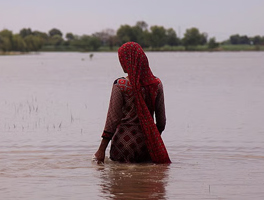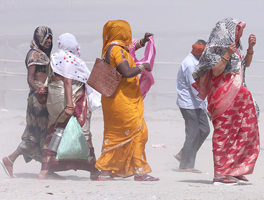 |
Dear readers,
Welcome to the Climate Weekly newsletter by the Centre for Science and Environment’s Climate Change programme and Down to Earth.
The Baku to Belem Roadmap was set up by the COP29 and COP30 Presidencies to scale up climate finance to developing countries to at least $1.3 trillion annually by 2035. Since March 2025, various Parties have provided submissions on the Roadmap. In my latest article, I analyse the submissions and write about the principle fault lines that are emerging between developing and developed nations on the Baku to Belem Roadmap.
In the submissions, developing nations are calling for concrete pathways to deliver more finance through grants and concessional instruments aligned with their national climate plans, alongside a climate finance definition, increased adaptation and loss and damage finance, and systemic reforms to address structural barriers like high capital costs, credit rating biases and limited fiscal capacities. Developed countries, on the other hand, are promoting private-sector mechanisms and voluntary contributions, including innovative instruments (such as green bonds and climate bonds), carbon markets and country platforms. This risks shifting obligations of developed nations from provision of public finance to mobilisation of private capital, and reveals a continuation of the fundamental divergences between developing and developed Parties on the question of climate finance.
In extreme weather news, a new analysis by IPE Global and Esri India has revealed that the number of heatwave days are set to double in Mumbai, Chennai, Delhi, Surat, Thane, Hyderabad, Patna and Bhubaneswar by 2030. Down to Earth’s Preetha Banerjee highlights that around 72 per cent of tier-I and tier-II cities will face increased occurrences of heat stress and extreme rainfall over this period. Coastal districts will be impacted too, with 69 per cent of coastal districts projected to be affected by heat stress by 2030. The findings underscore the escalating threat of climate change and call for urgent, localised interventions to strengthen resilience across urban and rural landscapes.
Finally, CSE Climate’s latest video podcast episode will be launched on June 28, featuring Avantika Goswami and Romain Ioualalen from Oil Change International. In this episode, the pair will reflect upon the Global Stocktake outcome of 2023—agreed upon by all Parties to transition away from fossil fuels—and how fossil fuel production continues to increase, jeopardising global climate goals.
|
|
 |
| |
 |
|
| |
 |
 |
| |
By - Upamanyu Das
Climate Change, CSE
|
| |
|
 |
|
|
| |
 |
|
| |
| EXTREME WEATHER TRACKER |
| |
Brace for a hotter and wetter monsoon across South Asia and Tibet this year: ICIMOD, 12 June 2025
|
 |
 |
|
|
| |
 |
|
| |
 |
 |
Heatwave days to double in Delhi, Chennai & these 6 Indian cities by 2030, 10 June 2025
|
|
|
| |
|
|
| |
|
|
| |
 |
|
| |
|
|
| |
|
|
| |
|
|
| |
 |
|
| |
CLIMATE NEWS | SCIENCE| IMPACTS| POLITICS |
|
| |
 |
|
| |
|
|
| |
 |
|
| |
|
|
| |
 |
|
| |
|
|
| |
 |
|
| |
|
|
| |
 |
|
| |
|
|
| |
|
|
| |
| Online Training Course |
|
Podcast |
| |
|
|
|
|
|
|
|
|
| |
|
|
|